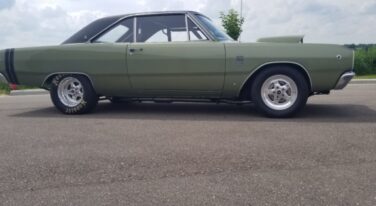
Brake Problems and Diagnoses
Click Here to Begin
When it comes to brakes, there’s no room for faults. The brake system is by far the most important system when it comes to your safety. It is a secured system that works by pressure. When you step on the brake pedal, the sealed brake fluid traveling through the brake lines pushes the pistons in the brake calipers, which clamps the brake pads onto the brake rotors. Between the brake pedal and the brake rotors are various components which could fail, causing your brake system to operate improperly.
Whether you use your car as a daily driver or on the track, a good, working brake system is extremely important. Brake issues can come in the forms of bad brake feel, weak stopping power, squealing and grinding, or anything different that happens when you step on the brake pedal. The brake pads, fluid, and rotors should be replaced as part of the maintenance schedule. Brake pads’ average life lasts approximately 30,000 miles, though it will vary depending on your driving style. Brake fluid replacement intervals can vary from one manufacturer to another, so it’s best to check your owner’s manual for appropriate maintenance. However, the average brake fluid replacement interval is every two years. Brake rotors have twice the lifespan of brake pads, so replace them every second brake pad replacement. Be aware that when you wait too long to replace your brake pads, you could start wearing out your brake rotors. Always replace opposite brake components at the same time; don’t replace only one side. If you’re having any trouble with your brake system, then read on to learn how to diagnose the issue.
When it comes to brakes, there’s no room for faults. The brake system is by far the most important system when it comes to your safety. It is a secured system that works by pressure. When you step on the brake pedal, the sealed brake fluid traveling through the brake lines pushes the pistons in the brake calipers, which clamps the brake pads onto the brake rotors. Between the brake pedal and the brake rotors are various components which could fail, causing your brake system to operate improperly.
Whether you use your car as a daily driver or on the track, a good, working brake system is extremely important. Brake issues can come in the forms of bad brake feel, weak stopping power, squealing and grinding, or anything different that happens when you step on the brake pedal. The brake pads, fluid, and rotors should be replaced as part of the maintenance schedule. Brake pads’ average life lasts approximately 30,000 miles, though it will vary depending on your driving style. Brake fluid replacement intervals can vary from one manufacturer to another, so it’s best to check your owner’s manual for appropriate maintenance. However, the average brake fluid replacement interval is every two years. Brake rotors have twice the lifespan of brake pads, so replace them every second brake pad replacement. Be aware that when you wait too long to replace your brake pads, you could start wearing out your brake rotors. Always replace opposite brake components at the same time; don’t replace only one side. If you’re having any trouble with your brake system, then read on to learn how to diagnose the issue.



![[Gallery] Okolona Street Rods Kentuckiana V Foundation Car Show](https://www.racingjunk.com/news/wp-content/uploads/2022/04/IMG_0774-e1650040587750-376x206.jpg)
![[Gallery] Road Rats Car Show](https://www.racingjunk.com/news/wp-content/uploads/2022/05/2A-e1651770667920-376x206.jpg)


Leave a Reply